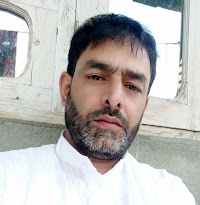
English 6th - Tulip Series
Lesson 7: Reusing the Waste (Prof. M. Aslam)
WORKING WITH THE TEXT
I.
Answer these questions:
Q1.
Why should we recycle things?
Ans.
We should recycle things to save our valuable resources. By recycling things,
we reuse the waste that is collected every day in our cities and villages.
Recycling things save money, thereby increases the economy of the country.
Q2.
Why is it easy to recycle plastic or metal?
Ans.
Metals are easily recycled because metal scraps are easily collected with the
help of magnets even from dirty water and drains. These scraps are recycled
into new steel and other materials. On the other hand, recycling of plastics is
not simple but they can be recycled and shaped into different objects.
Q3.
Why is plastic dangerous for health?
Ans.
Plastic is dangerous for health because it is a non-biodegradable substance,
that is, it cannot be decomposed. Certain chemicals leak from plastic, mix up
with water making it unfit for drinking.
Q4.
What are the benefits of recycling paper?
Ans.
Recycling paper saves our valuable forest resources. By reusing the waste
paper, we can save money and increase the economy of the country. Japan now
makes half of its paper by recycling.
Q5.
Two ways of recycling glass are mentioned in the text. What are they?
Ans.
In one way, the used glass material is collected from the consumers or bottle banks.
Then the material is cleaned, sold to industries, remanufactured, and sold once
again to consumers. In a second way, broken glass known as ‘cullet’, is re-melted
in furnaces and then shaped into new bottles or other objects and sold to
consumers.
Q6.
For what purpose can wastewater be easily reused?
Ans.
Wastewater, if recycled, can easily be reused for agriculture purposes. Many,
water treatment plants have been involved in the purification of wastewater.
The National Environmental Engineering Research Institute (NEERI) is one among
them.
Q7.
Mention the efforts that India is making in recycling things.
Ans.
India is making efforts to re-utilize and recycles the waste through treatment
plants in many parts of the country. The National Environmental Engineering
Research Institute (NEERI) at Nagpur is also involved in developing suitable
technologies for the treatment of waste-water, and the utilization of domestic and
industrial waste-water in agriculture after purifying it. 450,000 liters of
wastewater is purified daily and used in generating energy in Gujarat.
II.
Say whether the following statements are right or wrong. Put Tick or Cross
against each:
1.
Americans can save seventy-five thousand trees if they recycle New York
Times’ Sunday issue. True
2.
We cannot recycle plastic. False
3.
‘Cullet’ is another name for broken glass. True
4.
Paper waste makes one-fourth of the world’s total waste. False
5.
The Swiss and Dutch recover 50% of their glass from recycling. True
6.
India needs to do more to recycle its waste. True
LANGUAGE WORK
I.
Guess the meanings of the underlined expressions in the following sentences.
You can use a dictionary also.
i.
The school is celebrating its bicentenary next week.
Ans.
Bicentenary means ‘200th anniversary’ (bi=2; cent=100)
ii.
He’s been imprisoned for his anti-government views.
Ans.
Anti-government means ‘against the government’ (anti=against)
iii.
The president will address the post-launch session of the parliament.
Ans.
Post-launch means ‘after launch’ (post=after)
iv.
Many employees were arrested for non-payment of their taxes.
Ans.
Non-payment means ‘not paying’ (Non=not)
v.
This note from Grandpa is almost illegible.
Ans.
Illegible means ‘cannot be easily read’ (opposite of legible)
vi.
I don’t like that boy. He’s very impolite.
Ans.
Impolite means ‘not polite’ (opposite of polite)
vii.
We’ll have to re-organize the groups to accommodate more girls.
Ans.
Re-organize means ‘organize again’ (re=again)
II.
Guess how many syllables these words have. Consult the dictionary only after
you have finished. All the words are from the text.
Plastic=2
syllables, Bum=1 syllable, Different=2 syllables, Cullet=2 syllables, Metal=2
syllables, import=2 syllables Furnace=2 syllables, Pulp=2 syllables, recover=2
syllables, Consist=3 syllables, Western=2 syllables, Money=2 syllables
GRAMMAR WORK
I.
Complete the following list by outing a/an or some before the words:
An
egg Some
cheese
An
apple A
fly
Some
sweets An
orange
Some
bread Some
bananas
Some
meat Some
rice
Some
sugar A pen
II.
Fill in the blanks with the correct form of verbs given in the brackets. You
will need to use is/am/are and add -ing to the main verb.
The
President is addressing (address) the nation on the eve of
Independence Day. This speech is likely to interest everybody. He is
calling upon (call upon) people to fight narrow mindedness,
illiteracy, and poverty. All the TV channels are telecasting
(telecast) the address live. If you wish, you can listen to the speech from any
of the channels in your home. After his speech, the President is
leaving (leave) for Chennai where he is inaugurating
(inaugurate) the newly-built hospital building.
The Prime Minister
and his cabinet colleagues are accompanying (accompany)
him to Chennai. I am going (go) to listen to the address
as soon as it is telecast. My friends, Hameed and Tashi, are coming
(come) to my home. You know, they don’t have a TV set in their hostel. If you
like, you can come too.




.webp)




Good ..
ReplyDeleteAs a teacher i would like to appreciate u for your efforts & great work which definitely will benefit both teachers & students.thank u once again....
ReplyDelete